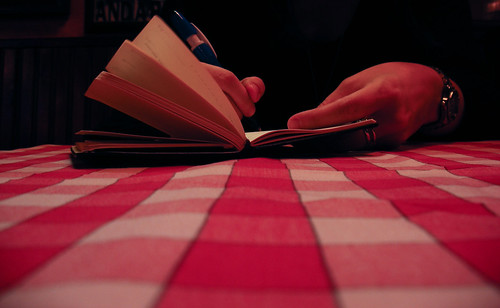 Looking for a crash course on photojournalism? Mindy McAdams has just what you're looking for in a new post on her very helpful and inspiring blog, Teaching Online Journalism.
Looking for a crash course on photojournalism? Mindy McAdams has just what you're looking for in a new post on her very helpful and inspiring blog, Teaching Online Journalism.In this seventh post of her series, “Reporter’s Guide to Multimedia Proficiency,” she tackles photojournalism. In "Learn How to Shoot Decent Photos" McAdams covers those basics on why still photos still matter, and why it's essential for young journalists to know how to take a good photo. She writes:
"Every journalist should be able to capture a decent photo in a breaking news situation. You might be the only journalist on the scene. Sure, today it’s likely that 100 people with cell-phone cameras will be on the scene too — but why shouldn’t YOU be the one who captures the Page One image that gets picked up by Reuters or AFP and zapped around the world?"She goes on to say that you don't need the most sophisticated photo equipment to get the job done. What matters is that you know what makes a good photo, and that you can get the shot when it counts.
Finally, she has the same message I've been drilling into my students this term: Practice, practice, practice!
"Shoot lots of photos of EACH thing you think is worth shooting. Since photojournalism is real life and not posed, your subjects will be moving and changing. Part of the trick to getting a good shot is to shoot waaay more pictures than you ever did on your summer vacation."So, what are you waiting for, get out there and take some more photos!
-rp-
(Photo credit: "Kuwait Free Photographers" by NoNo^Q8 - Free Photographer, courtesy of Flickr.com)



